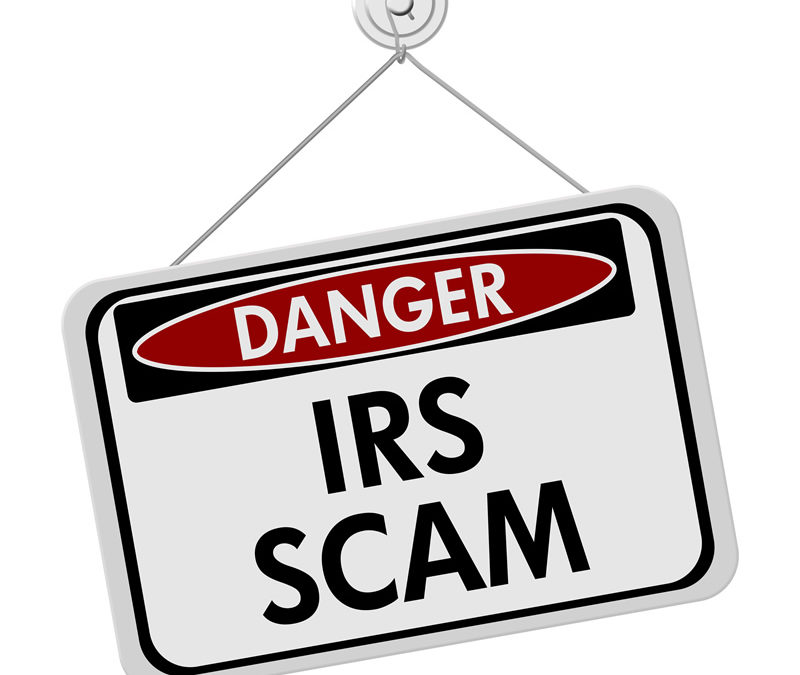The tax season is upon us once again, and with it comes the emergence of tax schemes both old and new. New tax scams in 2018 are as numerous and innovate as in previous years. Tax refund scams are so numerous, that the Internal Revenue Service issues an annual list of the twelve most prevalent tax scams in a list it calls the “dirty dozen”. As in previous years, several of the same tax scams have returned, but with new twists to keep them one step ahead of both authorities and unsuspecting taxpayers.
Here’s a list of actual tax scams to be on the lookout for and how you can protect yourself against them.
New Tax Scam for 2018
The newest criminal tax refund scam for 2018 is like others in the past, where a nefarious individual gets a hold of your social security number and files a faux tax refund in your name. However, in this latest scam, the criminals will have the money deposited into your account and then contact you claiming that the tax refund was a mistake and needs to be refunded. The scammers threaten the unsuspecting victims with fraud charges, arrest warrants, and even “blacklisting” a taxpayer’s social security number if the money isn’t sent back to them. This scam is a slight deviation from last year’s calls from individuals posing as officials from a local law enforcement agency or the IRS threatening arrest warrants, loss of business or driver’s licenses, or other penalties if unpaid tax bills aren’t paid immediately. In that particular scam, people were told to purchase a gift card to mail or to wire money to escape jail time.
Other Popular Tax Scams
For those scammers not bold enough to call you on the phone to demand money, they may resort to emails or fake websites in order to scam you. Commonly referred to as phishing schemes, scammers will attempt to lull you into giving them your information via emails that look like they are from the IRS requesting additional information or sending you to a website to enter in your details. Absent of this, identity theft is another major tax scam that taxpayers should be aware of. If a crook has your social security number and other details, they can not only file a tax refund in your name but also drain your bank account, or take out loans or lines of credit against your mortgage without your knowledge.
How to Avoid Tax Scams
Unfortunately, for those that have already sent money to scammers claiming to work for the Internal Revenue Service or had their identities stolen, it may be too late to get your money back. The majority of these scams are operated by criminal networks that reside overseas, far from the reach of the United States Justice System. In order to prevent being duped, you should be on the lookout for these scams or any occurrence that seems off or out of the ordinary.
If you get a “call” from the IRS hang up the phone immediately. The IRS won’t call demanding immediate payment or demand payment without offering the ability to question or appeal the amount owed. Additionally, if an individual claiming to be the IRS asks for credit or debit card information, requires a specific form of payment, or threatens to have you arrested, you can be sure you aren’t dealing with an IRS agent.
The IRS corresponds with taxpayers regarding tax delinquencies and other tax-refund related matter almost entirely by mail. You will never get a call from the IRS, and the IRS generally does not contact taxpayers by email for personal or financial information. Furthermore, the IRS won’t reach out to you via text or through social media channels.
If you receive a concerning phone call, email, or snail mail regarding your taxes, feel free to contact your Lawhorn CPA Group accountant with any questions. You can call us in office at 865-212-4867, or contact us online HERE. Not a client of Lawhorn CPA Group but you believe you have a tax bill, you can find out additional information about the tax debt at 1 (800) 829-1040. You’re also encouraged to report the call to the Treasury Inspector General for Tax Administration at 1 (800) 366-4484. If you are in receipt of what you believe to be a phishing scheme, you should report the incident to phishing@irs.gov and do not attempt to click any links or respond to the scammers.

